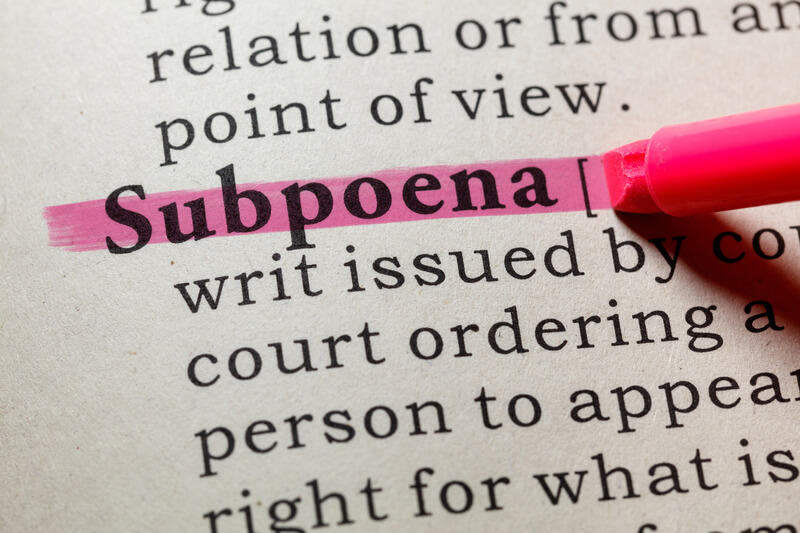Subpoena vs. Summons: How Do They Work?
Are you confused about the difference between a subpoena and a summons?
Asking questions about a subpoena vs summons can be crucial to your understanding of the legal system, and different types of court orders. After all, a surface-level examination appears to show they serve similar functions.
Understanding the distinctions between these legal papers may help set some essential expectations. Whether you want to follow a court case or are planning for your own, reading this quick guide will help give you some necessary details.
What is a Subpoena?
So how does a subpoena work, or what exactly is a subpoena? Ultimately, a subpoena is a tool of the court system or lawmakers. It orders an individual to appear at a hearing or provide requested documentation. Your participation is not optional. Furthermore, failing to follow directions typically results in criminal punishment. In fact, it is noteworthy that the word subpoena also means “under penalty.”
One reason for the heavy enforcement of a court subpoena is the critical nature of the information. The evidence that testimony or written records bring to the case can have significant consequences. Furthermore, a judge or congressional committee may need these details to justify their verdicts.
The three ways you can become subpoenaed to court include:
- Witness subpoena that orders an individual to testify
- Deposition subpoena that instructs a third party to testify or produce documents
- Subpoena duces tecum that demands providing records during pre-trial hearings
Contents
Federal regulations identify five elements that constitute a subpoena. The document someone serves to you must include the following:
- Name of the individual or organization receiving the subpoena
- Name of the statutory authority
- Details of the date, time, and place of the investigational inquiry
- A detailed description of any documents that the recipient must produce,
- A reasonable characterization of the subject matter for the testimony
Service
A subpoena can be served by an individual over eighteen years of age. Generally, the ways they can deliver it are:
- Hand-delivered in person
- Certified or registered mail
- Read out loud in person
- Email to the last known email address
What are Summons?
Purpose and Function
So, how does a summons work? The purpose of a court summons is to notify an individual or organization they are the defendant in a lawsuit. In effect, it is the starting point of civil litigation that can only end in a few different ways. The possible results include:
- Plaintiff drops the lawsuit
- Court dismisses the litigation
- The parties involved reach a settlement
- Either the jury or judge assigned to the case deliver a verdict after a trial
Contents
A summons to court must contain seven components under the Federal Rules of Civil Procedure. In some circumstances, it can also include some additional amendments.
Regardless, the core parts of a court summons letter must:
- Include the name of the civil court and the parties involved in the lawsuit
- Be directed to the defendant
- State the name and address of the plaintiff or their attorney
- Note a time, date, and location to appear
- Contain notification that states failing to appear results in a default judgment against the defendant
- Have a Signature from a court clerk
- Have an official seal of the issuing court
Service
Anyone over eighteen can serve a summons to the defendant in a civil action. However, it is not unusual for the court to assign a marshal or deputy marshal to deliver the requisite papers.
Some details of legal service can vary in each state. In most cases, the individual can serve a summons by:
- Giving the documents directly to the recipient
- Delivering the papers to a member of the defendant’s household
- Sending it via certified or registered mail
Work With an Experienced Local Attorney
Now that you have settled the subpoena vs. summons debate for yourself, what should you do next?
If you need help with a filing a lawsuit, or have another legal issue, we can connect you with a highly-qualified attorney in our network. We work with firms with specializations in specific areas of law that can be of paramount concern. We can also set you up with lawyers across state lines when needed. Send us a request through our website or call (866) 345-6784 to get started today!

